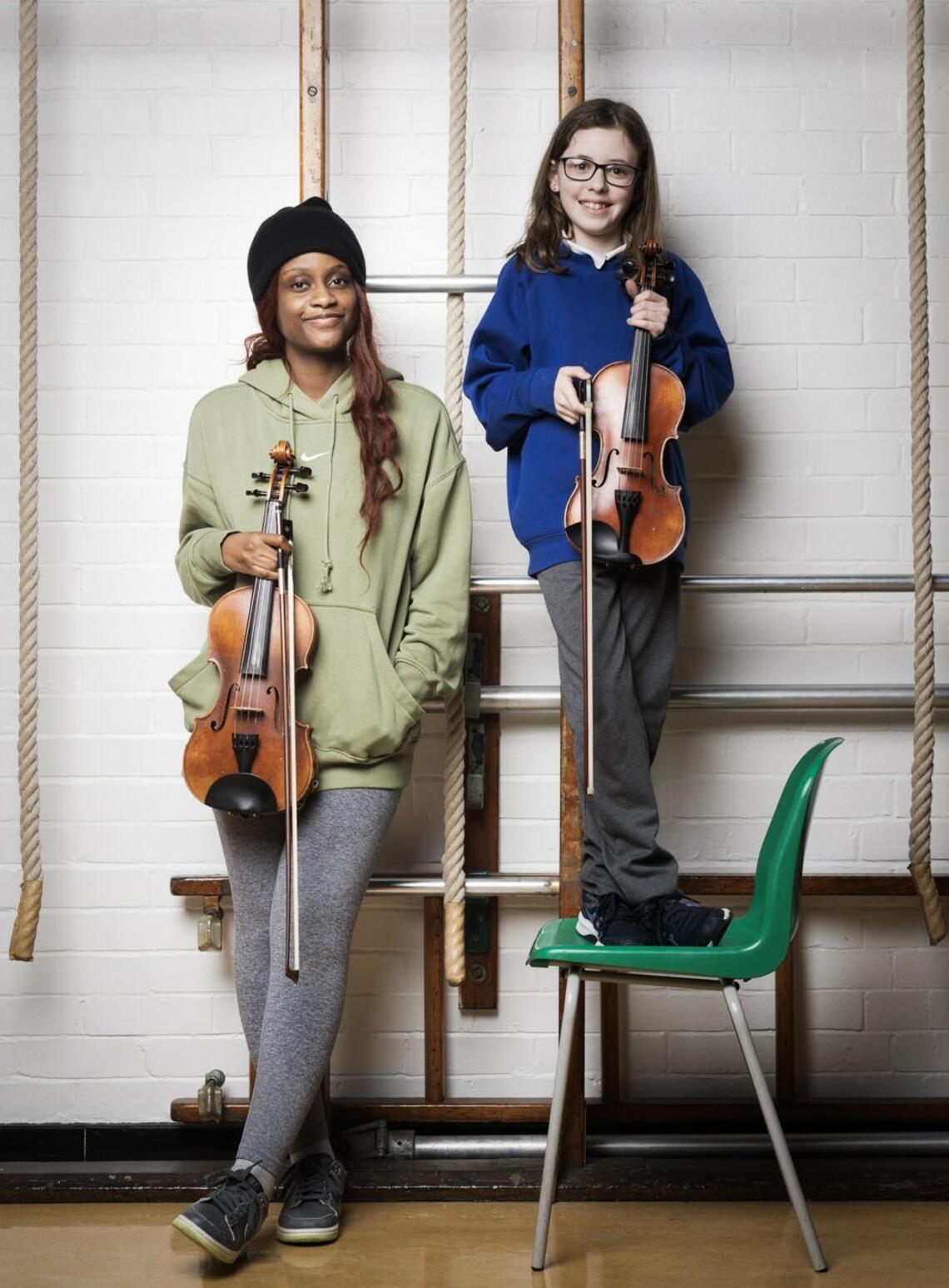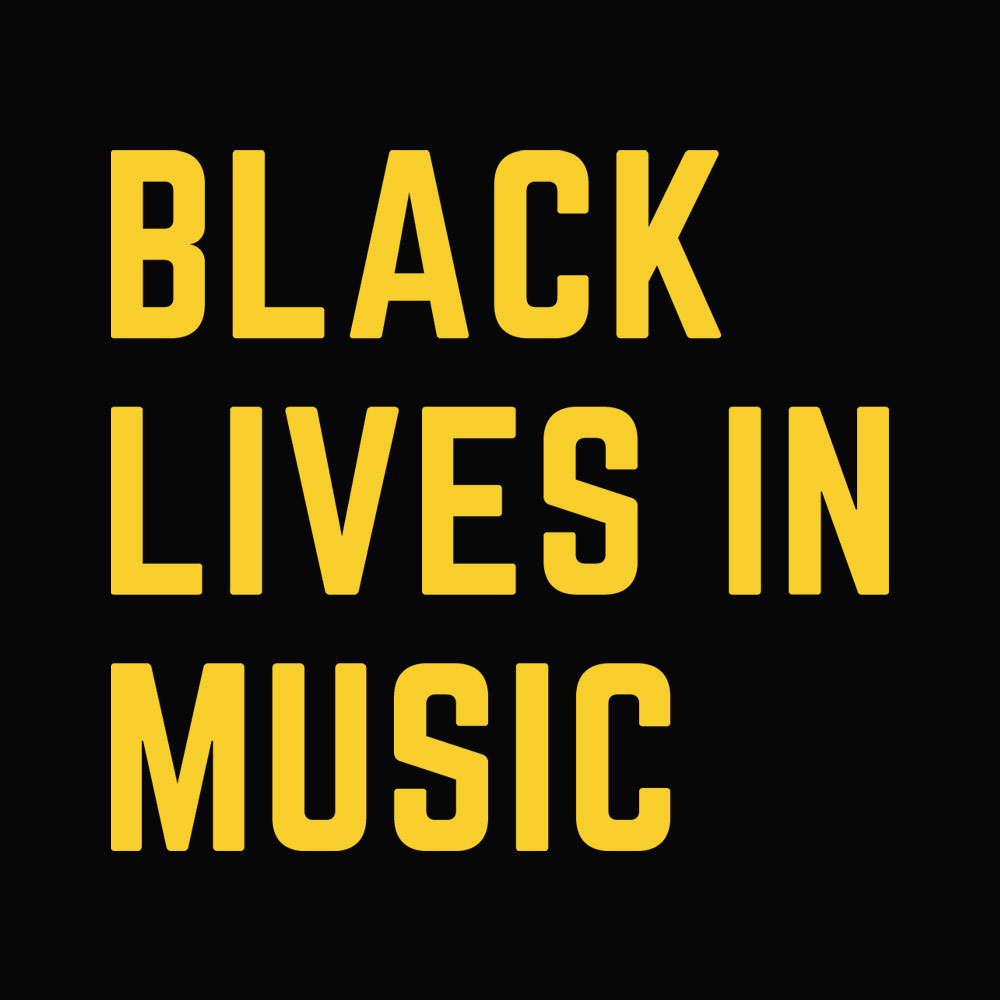
Black Lives in Music (BLiM) is a Black-led national organisation at the vanguard of efforts to address racial inequity in the UK Jazz and Classical music sectors. Our vision is for an inclusive music community and industry free of racism, prejudice and discrimination, where underserved music creators can reach their true potential.
We do this by bringing together and collaborating with a network of over 100 music creator partners from early to mid-career musicians to strategic policymakers and thought leaders who wield the power and actively seek to dismantle structural racism in music.
We use research, data and nuanced insights to campaign for equity and allow for the advancement of, mainly underserved and marginalised, Black and other minoritised musicians and music professionals.
“Thanks to Black Lives in Music, the data in this report [Being Black in the Music Industry 2021] proves that the individual stories we hear from professional musicians cannot be explained away as rare, one-off incidents but are illustrative of significant, widespread problems that we must all work together to address. It is clear there is more that Help Musicians should do, collaboratively, to create lasting change within the music ecosystem and we look forward to engaging with the BLiM team to work out where we can be most impactful. It is a privilege to be a major funder of BLiM and we hope that the creation of this report will help us, and others make a difference to improving the lives and careers of Black musicians.” James Ainscough, CEO, Help Musicians
Research and consultation form the cornerstones of our data-informed approach. We extensively survey our communities to better understand the lived experience of those working in music and the discrimination they face due to anti-Black and other forms of racism and discrimination. Our landmark report revealed the level of structural racism throughout the industry, from grassroot education through to the largest music corporations. Analysis of feedback from the 1,718 survey respondents identified valuable sector specific experiential data, such as:
- 67% have witnessed direct/indirect racism and 63% have experienced direct/indirect racism
- 73% have witnessed microaggressions and 71% have experienced racial microaggressions
- 36% of Black music professionals believe their mental wellbeing has declined, rising to 39% of Black women
- and 40% Black professionals have felt the need to change their appearance because of their race/ethnicity, rising to 44% of Black women
We know that the experiences of Black creators and industry professionals is intersectional; the barriers faced and the discrimination that is rife within the industry are compounded by further marginalisation and exclusion due to other protected characteristics such as gender, disability, faith or socio-economic background. Our 2023 report, Unseen. Unheard. was the first dataset to present in-depth research into the discrimination faced by underserved and underrepresented creators and industry professionals facing racial and disablism. The Unseen. Unheard. report built on the key findings of Being Black in the UK Music Industry alongside firsthand experience quotes from those affected. 16% of Being Black in the UK Music Industry respondents identified as being of Black African, Black Caribbean, mixed African or Caribbean descent, as well as identifying as having a disability or a longstanding mental ill health condition. Of those 149 respondents:
- 80% of Black disabled music creators and 89% of Black disabled music professionals felt they had faced some form of discrimination in the music industry
- 81% of Black disabled creators do not feel there is a clear career trajectory or path for them and only 8% said they had felt supported through each career stage
- 28% of Black disabled music creators and professionals have had to ignore racist comments in order to progress professionally
- only 38% of respondents felt that diversity and inclusion is an industry priority.
“I don’t think that [Black disabled people] don’t want to speak up. I think it is because there’s been no reason to speak up, and there’s not been a lot of support given to the Black community around learning disabilities, or in the music and media industry. It kind of feels that there’s no point in doing it because it will not bring any more awareness, benefits, or support. So everyone is just kind of doing their own thing.” – Jay McGregor, Radio & TV Presenter, Content Creator and Executive
Our insights are supported by research from other organisations and industry leaders such as Arts Council England (ACE) and UK Music. The ACE report, conducted by ICM Unlimited and DHA, Creating a More Inclusive Classical Music (2021) involved musicians and learners from the Western classical symphony orchestra tradition. Feedback was obtained from orchestras, ensembles, conservatoires, Music Education Hubs, musicians, music educators, those working in concert halls, promoters, agents and the wider sector. The study found that amongst the orchestral workforce in England only 3-6% were Black, Asian or from other minoritised ethnic groups even though they make up 18% of the UK population.
Our continuing research and reflective critical review with other music making organisations and industry partners highlights the scale of the problem, and the slow progress made since our inception in 2020. What stills stands and remains to be dismantled and combatted is:
- Black music creators and professionals experiencing racism and discrimination across the music ecosystem
- Black and other minoritised people are being underrepresented and facing conscious and unconscious biases from the music industry’s senior leadership and influencers
- Lack of data and research about diverse workforces means that none can be held to account and or supported to implement better systems and practices to make positive change
- Music education largely focusses on Western Classical music and the majority of music teaching neither understands nor has the experience to support students to pursue contemporary forms of Classical or contemporary Jazz music. Coupled with this is an absence of progression routes or networks to benefit Black and other minoritised music creators
- Traditionally, smaller Black-led organisations have been excluded from adding to the narrative about their lived experience and solutions for ‘moving the dial’ – a joined-up approach is needed to bring about meaningful and tangible change.
How Black Lives in Music addresses this need
We have a proven track record, spanning over 5 years and now collaborate with over 100 sector partners across the four nations and internationally. Our team has considerable high level professional and lived experience in the music industry as musicians, educators, tour managers and administrators. Robust data and insights underpin and inform our programmes that promote racial and social equity and support the empowerment of Black and other minoritised creators and professionals. The quality of our research and portfolio of programmes, symposia and industry toolkits enables us to have an impact from secondary and tertiary education level to up to the DCMS.
The three pillars of our work are Research, Advocacy and Action:
Research: Data Capture and Analysis
You cannot change what you cannot measure. Through rigorous research we continuously learn more about the communities we serve and the industry they work in. Our surveys feature both quantitative and qualitative components and collect statistical information on demographic profiles of respondents, including gender, age, ethnicity, disability, and location. The qualitative provision enables participants to highlight and elaborate on their experiences within the music industry, for instance, where they experienced or witnessed discrimination on the grounds of race and other protected characteristics.
We address identified dataset gaps, and through research and dissemination, we illuminate existing structural inequalities and lived experiences of the intersectional communities we serve. We will build on the success of Being Black in the UK Music Industry and Unseen. Unheard. (2023) to continue conducting research that champions the voice of the unheard, provokes wider thinking, and contributes to a narrative around necessary change in the industry.
Over the next 18 months, we will deliver:
- YourSafetyYourSay, a survey and report exposing bullying and harassment in the industry.
- A survey and report commissioned by the Greater London Authority, Mayor’s Office on Policing and Crime, delivered in partnership with Metropolitan Police, and Musicians’ Union to gather data on the over-policing and racial profiling of Black and other minoritised artists, event promoters, and venue owners.
- Thorough evaluation of the work we have delivered and BLiM’s impact on society.
- In 2025/26 and 2026/27, we will conduct research and produce reports focusing on Value of Music, Being Black in Music Education, Being Black in the Creative Industries, and Diversity in Music Organisations.
In 2025, BLiM will launch BLiM EquiTrack 2.0, a purpose-built online databank that directly addresses the lack of existing diversity data by providing organisations in the industry with the resources to collect diversity data and track progress towards equality. The digital toolkit includes a Learning Centre, providing resources to educate staff, enhance internal policies and practices, and foster a safe and inclusive environment for music creators to work, perform and flourish. We created a prototype towards the end of 2024, and this will be refined so that it can be digitally rolled out to market.
Advocating for Black Music Creators and Professionals
We champion voices in spaces where otherwise they are unheard, publishing the evaluation and recommendations from the surveys, seminars and fora we conduct, reports produced, and the governmental and industry sector briefings we lead and contribute to. Over the last year, highlights have included Classical:Next, the All-Parliamentary Group for Music, in December 2024, we hosted ‘Moving the Dial’, an symposium at the Guildhall School of Music and Drama, which brought together leaders from conservatoires, music education institutions, and BLiM member partners to share ideas and tackle some of the challenges in creating a more equitable and representative arts sector. The event closed with a call to action for attendees to sign up to EquiTrack.
Over the next 18 months, we will deepen our advocacy work for Black and other minoritised music creators and professionals to decision-makers, including at the House of Commons, with Ministerial Departments, and at parliamentary inquiries. Specifically, we will:
- Deliver a comprehensive marketing campaign for BLiM’s UK Music Industry Anti-Racist Code of Conduct and EquiTrack to help organisations commit to a safe and inclusive working environment
- Deliver the 4th iteration of Recruiting Classical, professional development workshops and ‘practice auditions’ for underserved musicians in collaboration with Bournemouth Symphony Orchestra, City of Birmingham Symphony Orchestra, Royal Liverpool Philharmonic Orchestra, Royal Northern Sinfonia, Royal Philharmonic Orchestra, and London Philharmonic Orchestra
- Deliver the 5th iteration of BLiM Connect, matching graduating students from marginalised and underrepresented groups with professional industry mentors
- Expand the Classically Black symposium to a two-day event, delivered in two locations (one in London, one elsewhere in the other UK’s nations). This ground-breaking event explores the experience of being a minority in classical music, championing Black music creators who also focus on music outside of the Western Classical music tradition.
- Launch an online platform in 2025 to showcase Black and other minoritised talented music creators, enabling promoters committed to racial equity to book artists directly
- Scope the BLiM Vanguard School of Music project. Vanguard will level the playing field of opportunity for children and young people outside of London, who face significant barriers to instrumental learning and music making.
- Integrity
- Honesty
- Balanced view points
- Inclusive thinking and actioon
- Willingness to collaborate
- Brinkmanship
- Allyship
- Anti-discrimination in practice
- We are small and mighty securing national and international reach

